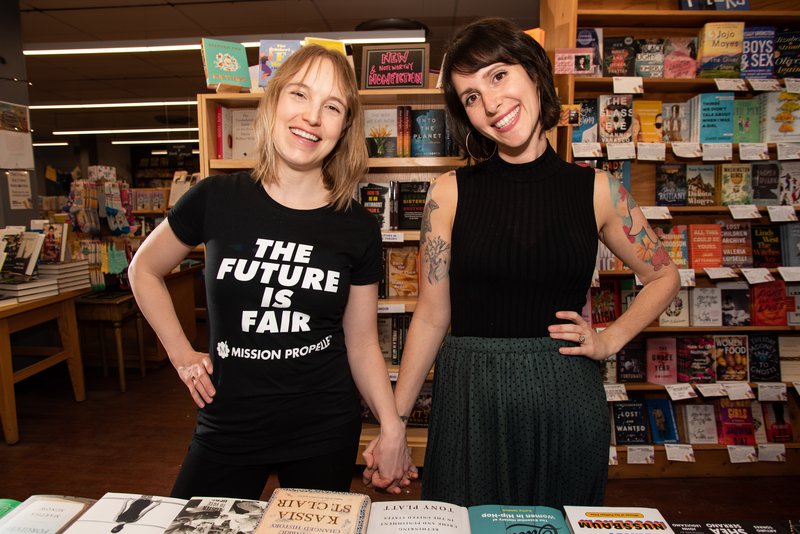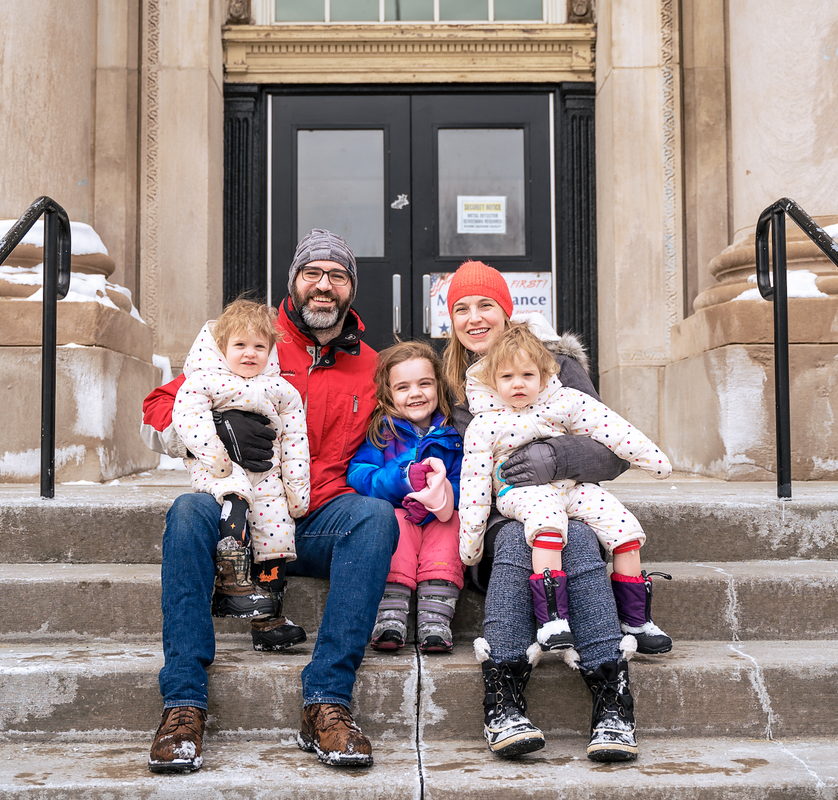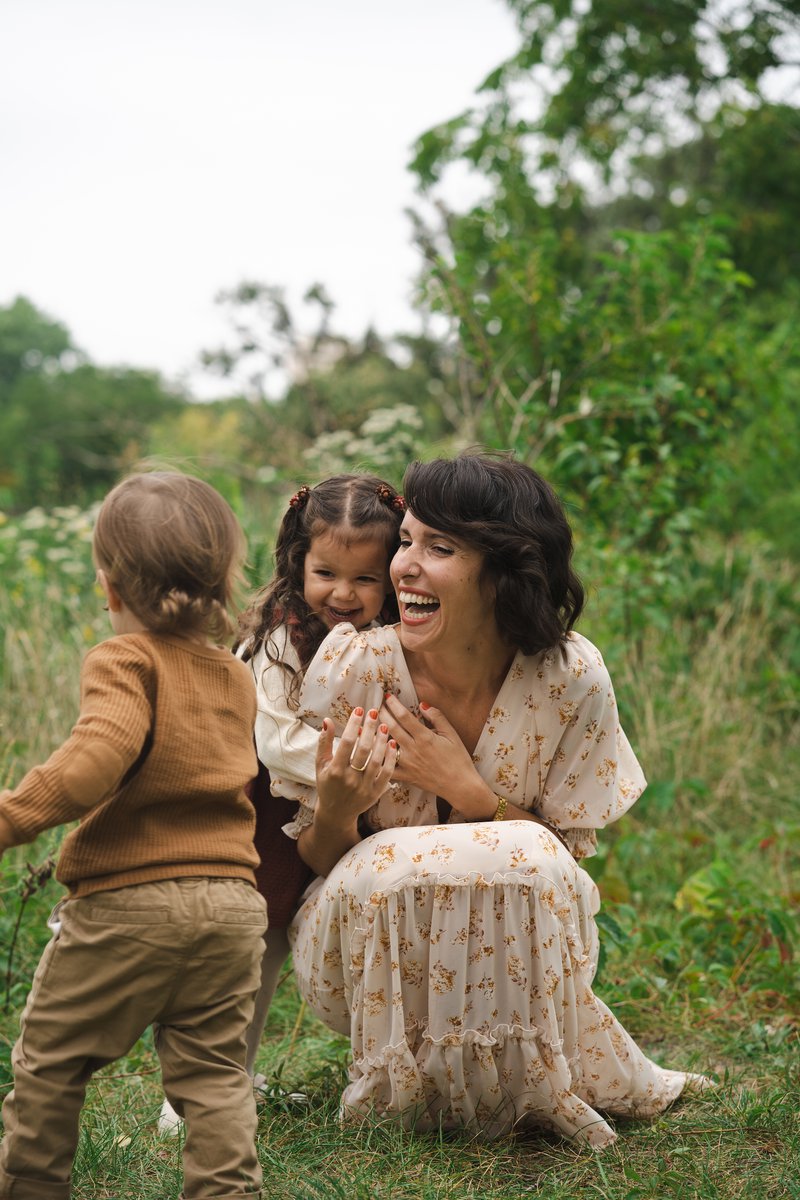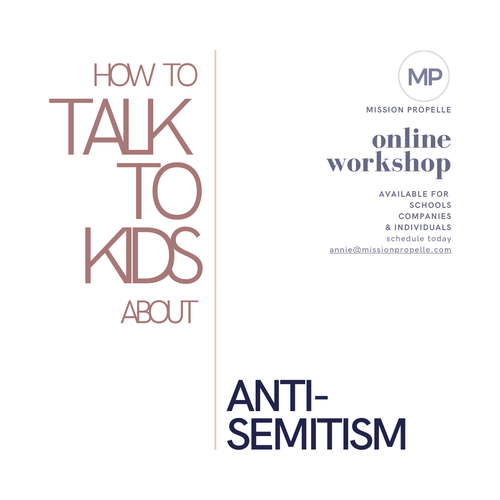Working Parents Still Haven't Recovered From the Pandemic
These gender equality educators say our homes and workplaces must change
Blog Post

Colin B Photography / Annie Warshaw
Nov. 7, 2022
The start of the COVID-19 pandemic in the spring of 2020 created an unprecedented crisis not only in American workplaces, but in homes across the country, particularly for families with young children where all parents were employed and children were suddenly locked out of child care and school. As The New York Times’s Jessica Grose put it in a recent op-ed, working parents feel like “butter that has been scraped over too much bread.”
Annie Warshaw and Jill Carey have confronted all that unrest head on, as both busy moms and as gender equality educators and consultants. In 2020, they pivoted their business from one focused on educating children in schools about gender equality, to one focused on workplaces and their overwhelmed caregiving employees.
Their approach to helping those parents, especially working moms, has focused on transforming workplaces and homes in tandem. Through their company Mission: Propelle, they provide personalized coaching for individual employees and policy guidance to organizations, focusing on leaders, whose habits set the tone for the rest of the company. The Better Life Lab’s Haley Swenson sat down with Jill and Annie to learn about their experiences and best practices for a better balance at work and at home in the wake of the pandemic.
This interview has been condensed and edited for clarity.
Haley Swenson: I want to start in 2020 when the pandemic began. I understand you were both doing gender equality work inside schools when the pandemic hit and juggling busy work lives as moms yourselves. Tell me about what those initial weeks of the pandemic were like, both for you personally, and then when you realized that that school model— teaching school kids about gender equality—that approach for your business wasn't going to work.
Annie Warshaw: Around March 15, 2020, they announced suburban schools were closing, and then after that, that Chicago Public Schools closed. Jill came over and we sat at my kitchen table, and we cried a lot. And we were like, “Okay, two weeks. We can do this for two weeks.” But, you know, as everybody realized pretty quickly this was not a two week situation.
I feel like those initial weeks we spent a lot of time really focusing on how we were going to get PPP (Paycheck Protection Program) and how we were going to continue to support our instructors. Our employees were all gig economy workers who now had no jobs. We got together with all the other after-school programs and built a coalition to understand what everybody else was doing. We organized all the programs and came together and decided for a stop-gap, and just to get some income, we needed to create a camp with all of our different vendors. That launched in June of 2020. Then Jill and I realized, “Okay, we need something else. Like what are we going to do?”
We had a lot of brainstorming sessions. We talked to a lot of friends and different startups and ventures to see what they were doing and how they've shifted over time. And this is where the personal comes in. We're home with our kids. We're actually having a pretty good time. We're not struggling like all of our friends. What's going on here? And then we heard [Better Life Lab Director] Brigid [Schulte] on Fresh Air. Experts were already talking about how gender was impacting everyone in the pandemic.
While camp was running, we did a ton of research, both primary and secondary—a lot of interviews with moms specifically, and of every identity you could think of. And then secondary research, looking at different journal articles to see what kind of professional development was being used in workplaces. What was the efficacy of parent-related professional development and did it currently exist? There was professional development for parents but it was very much still rooted in pre-pandemic life. There was nothing that was like, “How are you going to do homeschooling and work at the same time?” And so we wanted to be able to answer that and create something people could sink their teeth into, take action and get moving the next day. That idea has evolved over the past few years.

Jill Carey with her partner and children
Source: Jill Carey
Haley: When you were in your research phase, what kinds of stories were you hearing?
Annie: A central theme in talking to women was, even if she was a frontline worker outside the home, she was carrying the mental load. And for every single person we talked to, whether it was single parent, non-single parent, there was an overwhelming amount of guilt. And I would always ask this question: “What do you think you're doing really, really well right now?” And it was always very difficult for the people to answer. Once the moms started talking, they'd be like, “Well, actually, you know what, I am spending a lot of time with my kids.” It was really hard for the moms to see what they were contributing, being productive and that they were being present for their kids, because it felt so different from what they had previously defined as being a “good parent.”
Before the pandemic, most parents felt good, or good enough, about the balance of time they spent at home and at work. Throughout the pandemic, parents have reported that they are completely off balance. At this stage, it is hard to re-compartmentalize work and family because they became so enmeshed during lockdowns. Children often struggle with sudden transitions -- especially when transitions mean a reduction in time with their parents -- which can magnify the sense of guilt or failure when it comes to being a "good" parent.
Haley: I want to get into some specifics. On your website you have a case study on a huge pain point for a lot of families: mornings. You have a family, mom and dad, dual earners, three kids, a one year old, three year old, and five year old. I’m sure you can picture the morning chaos. In your “before” scenario, in getting everyone ready for the day and out the door, it's mom, mom, mom. Mom does this for toddler, mom does this for baby. You can just imagine having to work after a morning like that, drained before you even get to the office. What kinds of systems do you recommend for a couple who's in the throes of it like this?
Annie: Something Jill and I did on day one of the pandemic was have a conversation with our partners about our needs and availability: We're like “Okay, what time do you need to work? What time are you going to be most efficient? Here are the hours I need to work.” We had very clear boundaries around who was working and who was in charge of children.
It comes down to a couple of things: intentionality, clear communication, and making sure that you and your partner are both getting what you each need to feel like humans.
Jill: We walk through a process of helping our clients make the invisible, visible, without hurting feelings. Without coaching, the conversation might be, “I need you to wake up 20 minutes earlier so that I can take a shower.” And then the partner says, “Well, that's not going to work because I have to shave in the morning.” And you get into this back-and-forth of “I need this. I need that. I need this.” You're not moving anything anywhere. So we start by just making the invisible, visible. Your partner might not be aware that you have to blow dry your hair – they might never see you do that because they might go to work before you ever do it, or you might be doing it at night. So, from the everyday things that we make visible, we have a healthy and productive conversation about what each person needs to get done and when and there is a conversation about the compromises and sacrifices that need to be made.
Annie: It's worth noting that in order to be culturally responsive, our first conversation is about the values you have as a family. If your value as a family is – I want my child to want to be independent and have their own life – then all of the tools we give you are based on the psychology and research of bringing your child to that point. We use research in psychology and different disciplines to help guide you toward that end goal. So it's very much aligned to what an individual or for their family and how that works in the context of their identity and culture.
Haley: So you made this shift from focusing on school-age kids to workers. How do you think about change differently? How do you think about what it looks like to create change? Are you focused on individuals making their own situations better or organizations creating reform?
Jill Carey: When we work with corporate clients, whether they're nonprofits and for-profits or startups or multinational corporations, at the end of the day, no matter what policies you have in place, change starts at the top. So many companies will say, “Well, we have flexible work policies, and work from home policies, what more could you want? We're giving you all this stuff, and you're still not happy, you're still quitting.” And then we look at the data and it's often the case that the leadership isn’t adhering to the policies. They're not taking flexible work. They're not working from home. They're not ever having cameras off during [virtual] meetings, or they are and it's not visible. It leaves this huge disconnect between the workforce and the leaders, where the workforce still feels that sense of nervousness and anxiety that if they actually take advantage of the policies, they'll be regarded as lesser contributors than their peers, or that they won't be regarded as team players. And so when we coach leaders and also offer policy guidance, that brings the policy into alignment with both the actions and communications of leadership. Then we see employee satisfaction rise, along with greater use of all these policies that are designed to support families.

Annie Warshaw with her children
Source: Annie Warshaw
Haley: So what is it that the organizations that get it, that really invest in retaining these parents or other caregivers, what do they look like?
Jill: The companies that really get it have a very strong sense of common humanity. No matter who is in leadership, whether it is a parent who's in the thick of it, or empty nesters or people who are childless. They don't degrade the humanity of their colleagues. They're not stingy about recognizing that it is very difficult to parent and work in a pandemic. They recognize that we each have full and busy lives and that that creates stress and tension that interferes with productivity and wellbeing at the workplace. And they are open to engaging in a conversation to determine how they can create a healthy set of boundaries.
Haley: Given the disruption of the pandemic, what advice would you give to an individual who is really overwhelmed, and just getting started in this journey toward more fulfilling relationships and a happier work-life dynamic?
Jill: Individually, I would say, the first step would be to assert your right for some alone time and do some self reflection on your well being. This can be very simple. It could just be journaling. Write down the primary identities that you possess. Jot some notes underneath, about how you feel in each of those arenas. And once you have a grasp of where you're thriving, and where you feel very depleted, look to your past successes and what paths you took to find greater well being. What patterns can you replicate?
And what kinds of support can you recruit? Whether that's from a spouse, parents, loved ones, friends, or even your company’s HR department, schedule a time to take inventory of what can build your reserves. So many people have no concept of the depth of the policies that companies have to actually support well-being. It's worth asking. And of course, we’re here to help too. An outside perspective can shift everything.
Mission Propelle offers regular online workshops on How to Talk to Kids about various tough topics. For an upcoming event on talking to kids about Anti-Semitism, Annie and Jill offer readers of this article 15 percent off registration when you contact them and mention reading this article. Email Annie Warshaw directly, annie@missionpropelle.com, to take advantage of this opportunity.
